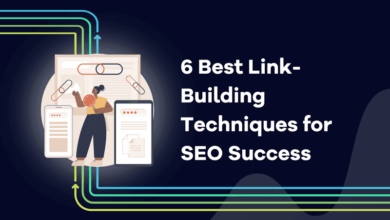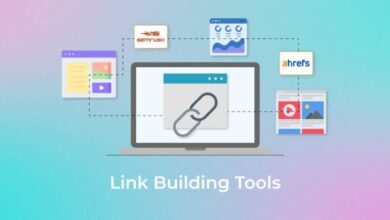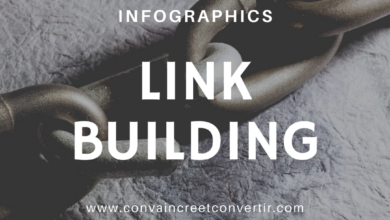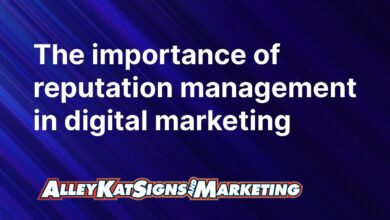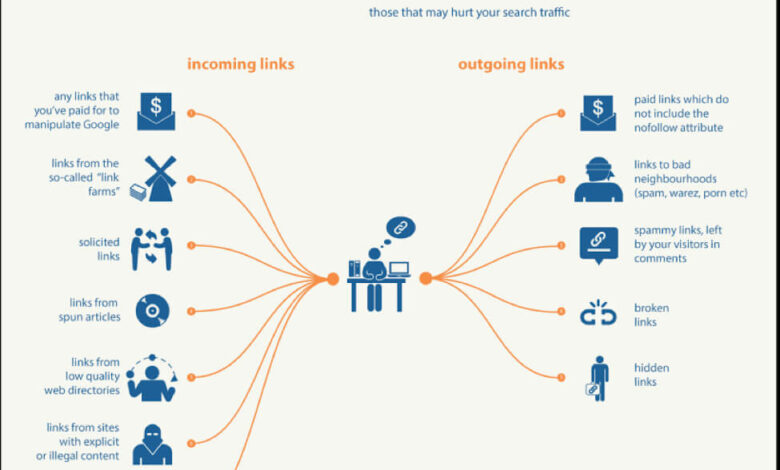
Why Not to Buy Backlinks?
Why not to buy backlinks? That’s a question many website owners grapple with, especially those new to the world of . The allure of quick results is strong, but buying backlinks often proves a costly and ultimately self-defeating strategy. This post dives into the risks, the financial pitfalls, and the ethical concerns associated with purchasing links, showing why building your backlink profile organically is the far superior – and safer – approach.
From potential Google penalties and reputational damage to the sheer cost-ineffectiveness and difficulty in managing purchased links, the downsides significantly outweigh any perceived short-term gains. We’ll explore real-world examples, compare the risks of paid versus earned links, and offer practical, cost-effective alternatives to help you build a strong, sustainable online presence the right way.
Risks Associated with Purchased Backlinks
Buying backlinks might seem like a shortcut to higher search engine rankings, but it’s a risky gamble that can severely damage your website’s online presence. The perceived benefits rarely outweigh the potential consequences, leading to long-term harm rather than short-term gains. Let’s explore the significant risks involved.
Google Penalties for Low-Quality Backlinks
Google’s algorithms are constantly evolving to detect and penalize websites employing manipulative link-building tactics. Purchasing low-quality backlinks from unreliable sources, such as link farms or websites with irrelevant content, is a major red flag. These backlinks often lack authority and relevance, signaling to Google that your website is attempting to artificially inflate its ranking. The result can range from a manual action penalty (requiring you to fix the issue to regain ranking) to a complete de-indexing from search results, effectively making your website invisible to potential customers.
The longer you use these methods, the more severe the penalty can become. Google’s algorithms are sophisticated and are becoming better at detecting these schemes every day.
Negative Impact of Unnatural Link Profiles on Website Ranking
A website’s link profile refers to the collection of backlinks pointing to it. A natural link profile is built organically over time through high-quality content creation, outreach, and genuine engagement. Purchased backlinks create an unnatural link profile characterized by an influx of links from irrelevant or low-quality sources, all appearing within a short period. This unnatural pattern immediately raises suspicion with Google’s algorithms.
Your website’s ranking will suffer as Google identifies this artificial boost as a violation of their guidelines, leading to decreased visibility and traffic. A website with an unnatural link profile often sees a significant drop in organic search rankings, even if the content itself is excellent.
Examples of Black Hat Techniques Used in Backlink Schemes
Several black hat techniques are frequently employed in backlink schemes. These include:
- Link Farms: Websites created solely for the purpose of generating backlinks. These sites typically have little to no original content and are designed to artificially boost the rankings of other websites.
- Private Blog Networks (PBNs): Networks of websites secretly owned and controlled by the same individual or entity, used to create a web of interconnected backlinks.
- Comment Spam: Leaving irrelevant or spammy comments on blogs and forums solely to include a backlink.
- Directory Submissions: Submitting your website to low-quality directories with little to no relevance to your niche.
- Article Marketing with Hidden Links: Submitting articles to article directories with hidden or disguised backlinks.
These tactics, while potentially providing short-term gains, carry significant risks of long-term penalties. The effort required to create and maintain these networks is often far greater than building high-quality organic links.
Instances Where Purchased Backlinks Have Harmed a Website’s Reputation
There are numerous documented cases of websites suffering reputational damage due to purchasing backlinks. A website associated with low-quality or spammy links is perceived as untrustworthy by both search engines and users. This can lead to decreased user engagement, lost sales, and a damaged brand image. For example, a business might see a decline in customer trust if their website is linked to sites known for promoting fraudulent products or services.
The association, regardless of the business’s actual practices, can be severely damaging. This damage can be far more difficult to recover from than a simple ranking penalty.
Risk Comparison: Purchased vs. Organic Backlinks
| Factor | Purchased Backlinks | Organic Backlinks |
|---|---|---|
| Risk of Penalty | High | Low |
| Impact on Ranking | Negative (potential for significant drops) | Positive (gradual, sustainable increase) |
| Cost | High (ongoing payments often required) | Low (time investment required) |
| Long-Term Sustainability | Low (penalties can erase gains) | High (naturally built links are more durable) |
Cost Ineffectiveness of Backlink Purchases
Buying backlinks might seem like a shortcut to higher search engine rankings, but the reality is often far less appealing. While a quick influx of links might appear beneficial, the long-term cost and lack of genuine value often outweigh any short-term gains. This section explores why purchasing backlinks is a financially unsound strategy compared to organic link building.The core issue is the disparity between the upfront cost of purchased backlinks and their actual return on investment (ROI).
Consider this: you might pay $50-$100 (or even far more) for a single backlink from a low-quality website. That same investment, applied to creating high-quality content and engaging in genuine outreach, could yield dozens, if not hundreds, of high-authority backlinks over time. The organic approach, while requiring more effort upfront, delivers far superior long-term value.
Comparison of Costs and ROI: Purchased vs. Organic Link Building
Let’s illustrate the cost difference. A small business might spend $500 on a package of 50 low-quality backlinks. These links are likely from irrelevant websites with low domain authority, offering little to no actual benefit to search engine rankings. Alternatively, $500 invested in creating a comprehensive, insightful blog post, along with targeted outreach to relevant websites and influencers, could potentially generate several high-quality backlinks from authoritative sources.
These high-authority links carry far more weight with search engines, resulting in a significantly higher ROI. The initial investment in organic link building might seem higher, but the long-term payoff is exponentially greater.
Long-Term Financial Implications of Purchased Links
Relying on purchased links creates a precarious foundation for your online presence. Search engines actively penalize websites employing black-hat tactics like buying backlinks. A penalty can result in a significant drop in search rankings, leading to a loss of organic traffic and potential revenue. The cost of recovering from such a penalty – in terms of lost business and the effort required to regain search engine trust – far exceeds the initial investment in purchased links.
This is a hidden cost that often goes overlooked. Furthermore, maintaining a purchased backlink profile requires continuous investment, as these links often degrade or disappear over time.
Alternative Strategies for Link Acquisition
Instead of purchasing links, focus on building relationships and creating high-quality content that naturally attracts backlinks. Guest blogging on relevant websites, participating in industry forums, and creating valuable resources that other websites will want to link to are all effective strategies. This approach takes time and effort, but it fosters genuine engagement and builds a strong, sustainable link profile.
The result is a far more robust and reliable online presence that’s less vulnerable to search engine penalties.
Scenarios Where Purchased Backlinks Outweigh Benefits
Any scenario where you prioritize quick wins over sustainable growth makes purchasing backlinks a risky bet. For instance, attempting to rapidly boost rankings for a highly competitive through purchased links is likely to backfire. The risk of penalty outweighs any temporary gains. Likewise, if you lack a strong foundation of high-quality content, purchasing links is akin to building a house on sand.
It won’t stand the test of time.
Cost-Effective Methods for Acquiring High-Quality Backlinks
Before investing in any link-building strategy, focus on creating exceptional content that is genuinely valuable to your target audience. This content will naturally attract backlinks.
- Create high-quality, shareable content: Infographics, in-depth guides, and original research are excellent examples of content that attracts links.
- Guest blogging on relevant websites: Offer to write guest posts for authoritative blogs in your niche.
- Broken link building: Find broken links on relevant websites and suggest your content as a replacement.
- Resource page outreach: Identify resource pages in your niche and pitch your content as a valuable addition.
- Engage in online communities: Participate in relevant forums and discussions, providing valuable insights and building relationships.
Impact on Website Authority and Trust
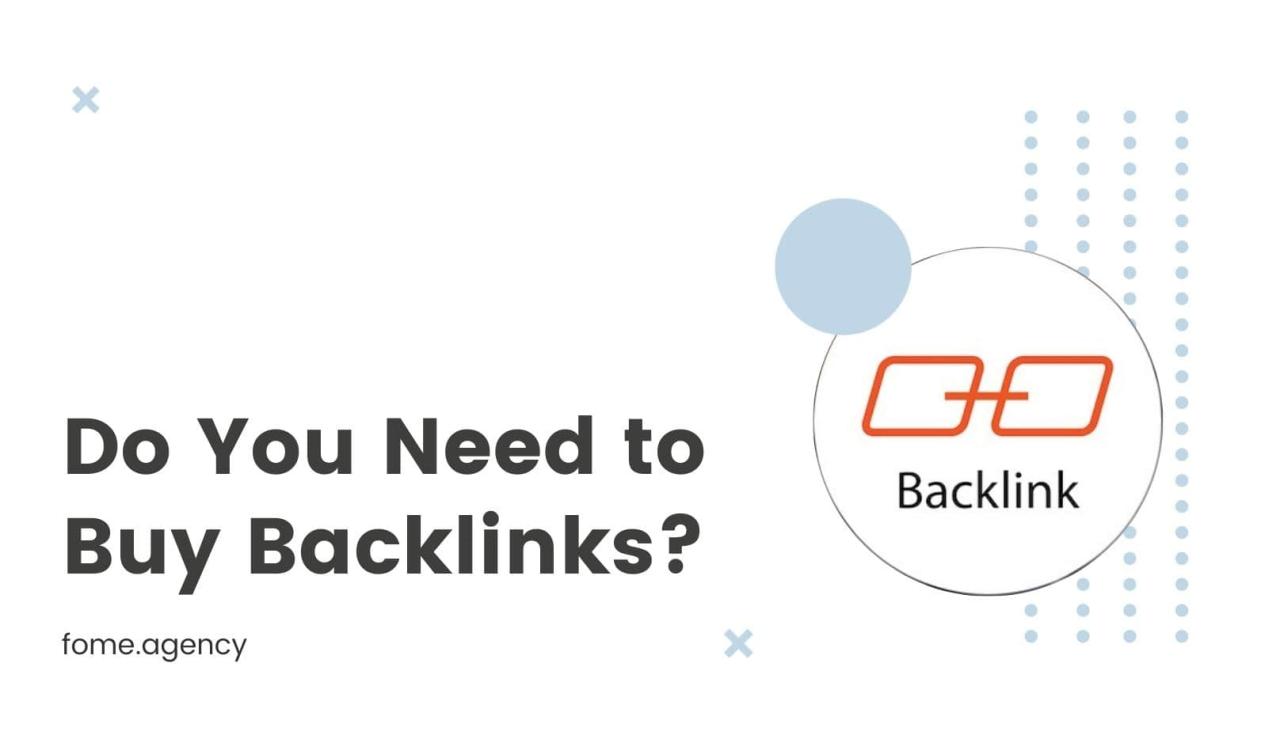
Source: fome.agency
Buying backlinks might seem like a shortcut to higher rankings, but it’s a dangerous gamble that can severely damage your website’s reputation and long-term success. Search engines are constantly evolving their algorithms to detect and penalize unnatural link-building practices. Purchasing backlinks signals to these algorithms that you’re attempting to manipulate search results, leading to significant negative consequences.The impact of purchased backlinks extends beyond simple ranking penalties.
It fundamentally undermines the trust and authority your website needs to thrive. A website’s authority is built on the organic accumulation of high-quality, relevant backlinks from reputable sources. These links act as votes of confidence, signaling to search engines and users alike that your content is valuable and trustworthy. Purchased links, conversely, often originate from low-quality, spammy websites, which actively harm your reputation.
Negative Impact on Domain Authority
Search engines like Google use sophisticated algorithms to assess a website’s authority, a crucial factor in search engine rankings. Domain Authority (DA) is a metric reflecting this authority, and purchasing low-quality backlinks can significantly lower your DA. These backlinks, often from irrelevant or penalized websites, send negative signals to search engines, indicating a lack of trustworthiness and potentially leading to de-indexing or penalties.
The resulting drop in DA makes it harder to rank for relevant s, hindering organic traffic and overall website visibility. The investment in purchased backlinks becomes counterproductive, as the damage to your site’s reputation outweighs any short-term gains in rankings.
Low-Quality Backlinks and Diminished User Trust, Why not to buy backlinks
Low-quality backlinks often come from websites with irrelevant content, poor design, or even blatant spam. Users who encounter these sites through your backlinks may perceive your website as untrustworthy by association. This negative perception translates to lower user engagement, higher bounce rates, and ultimately, a loss of credibility. For example, if your website is about organic gardening, and a backlink comes from a website selling counterfeit pharmaceuticals, the association damages your credibility even if the link itself is technically functional.
The user might immediately assume your website is also untrustworthy. This can be detrimental to your brand reputation and long-term growth.
Examples of Credibility Loss Due to Unnatural Link Profiles
Several high-profile websites have suffered significant reputational damage due to unnatural link profiles, highlighting the risks of purchasing backlinks. For instance, some businesses have experienced drastic drops in rankings and traffic after Google detected their unnatural link-building schemes. These cases often involve large-scale purchases of low-quality backlinks, often from link farms or websites with little to no relevance to their industry.
The resulting penalties can be severe, sometimes leading to complete de-indexing from search results, effectively wiping out their online presence. This demonstrates the importance of focusing on organic link building strategies.
Importance of a Natural and Organic Link Profile
A natural link profile is built organically over time through creating high-quality content that naturally attracts backlinks from other websites. This process takes time and effort but is far more effective and sustainable than buying links. A natural profile demonstrates to search engines that your website is a valuable resource, worthy of high rankings. It’s characterized by a diverse range of backlinks from authoritative and relevant websites, reflecting the genuine value and credibility of your content.
This organic approach is crucial for building long-term trust and authority.
Comparison: Natural vs. Purchased Backlinks
| Feature | Naturally Acquired Backlinks | Purchased Backlinks |
|---|---|---|
| Source | High-quality, relevant websites | Low-quality, often irrelevant websites; link farms |
| Relevance | Highly relevant to website content | Often irrelevant or loosely related |
| Impact on DA | Positive, gradual increase | Negative, potential sharp decrease |
| User Trust | Increased user trust and engagement | Decreased user trust and engagement |
Difficulty in Monitoring and Managing Purchased Backlinks
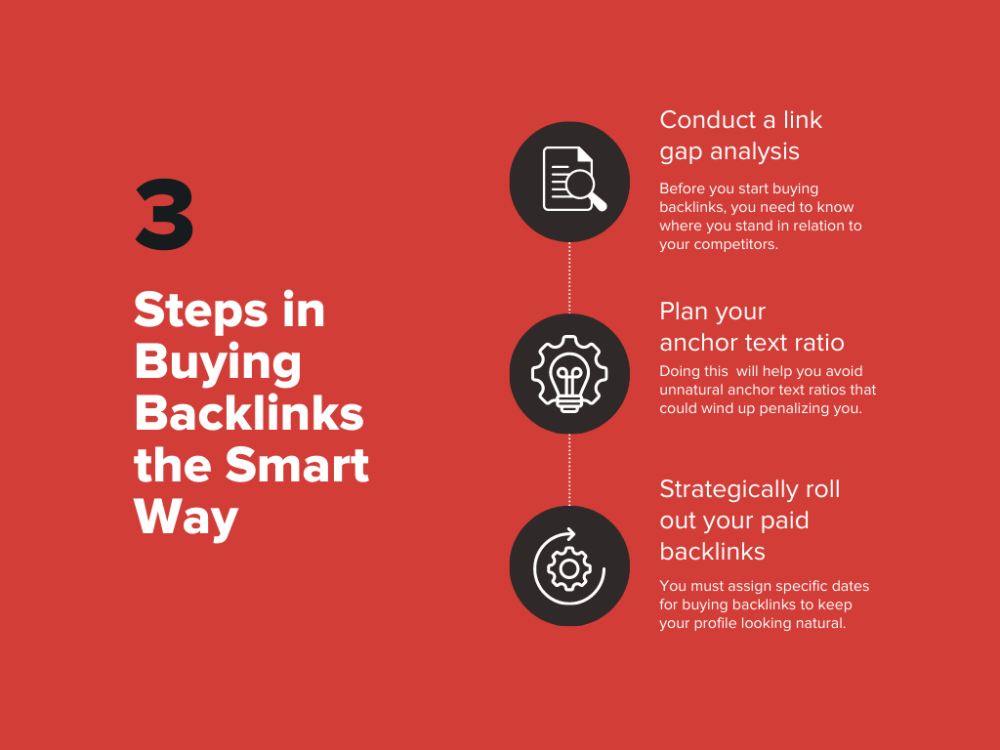
Source: thehoth.com
Buying backlinks might seem like a quick fix for , but the long-term management headache is often overlooked. Tracking and maintaining a large network of purchased links is a significant undertaking, far more complex than simply acquiring them. The sheer volume of links, coupled with the inherent risks, creates a logistical nightmare that can quickly outweigh any perceived benefits.The challenges involved in tracking and managing numerous purchased backlinks are substantial.
Imagine trying to keep tabs on hundreds, even thousands, of links scattered across various websites, often with different owners and varying levels of quality. This requires dedicated time and resources, including sophisticated software tools, to monitor their status, assess their performance, and react to any changes. Neglecting this aspect can lead to serious repercussions.
Potential for Backlink Toxicity and Disappearance
Purchased backlinks are inherently risky. Websites selling links often employ black-hat tactics, resulting in low-quality links that can harm your website’s ranking. These links can be penalized by search engines like Google, leading to a significant drop in organic traffic. Furthermore, websites selling links might disappear or change their content, rendering your purchased links useless or even harmful.
A sudden loss of numerous backlinks can trigger suspicion and negatively impact your site’s authority. For example, a website selling backlinks might be penalized by Google for its own black-hat practices, causing all its outgoing links to lose their value. This could affect many websites that bought links from that site.
Examples of Purchased Backlinks Becoming a Liability
Consider a business that purchased a large number of backlinks from a low-quality link farm. Initially, they might see a temporary boost in rankings. However, if Google identifies the link farm as manipulative, it could devalue or even penalize the business’s website, leading to a significant drop in rankings and traffic. Another example could be a company purchasing backlinks from websites with irrelevant content.
This not only fails to boost their rankings but also signals to Google that their website is untrustworthy, further harming their . This misalignment between the website’s content and the source of its backlinks can be detrimental.
Strategies for Identifying and Removing Harmful Backlinks
Identifying and disavowing toxic backlinks is crucial for mitigating the negative impact of a poorly managed backlink strategy. Tools like Google Search Console and third-party platforms can help identify potentially harmful backlinks. A manual review is also essential, focusing on links from spammy websites, irrelevant content, or sites with a history of black-hat practices. Once identified, these links can be disavowed through Google Search Console, effectively telling Google to ignore these links when assessing your website’s authority.
This process requires careful consideration, as incorrectly disavowing good backlinks can also harm your efforts.
Creating a Backlink Monitoring System
Effective backlink management necessitates a proactive approach. A robust system should involve regular monitoring of your backlink profile using tools to track link acquisition, assess link quality, and identify any potentially harmful links. This system should also include a process for disavowing toxic backlinks and regularly reviewing the overall health of your backlink profile. Automation, where possible, can simplify this process, allowing for timely intervention and preventing small issues from escalating into significant problems.
For instance, setting up automated alerts for new backlinks and changes in existing ones can provide early warning signs of potential issues. This allows for proactive management and prevents the accumulation of toxic links.
Ethical and Legal Concerns
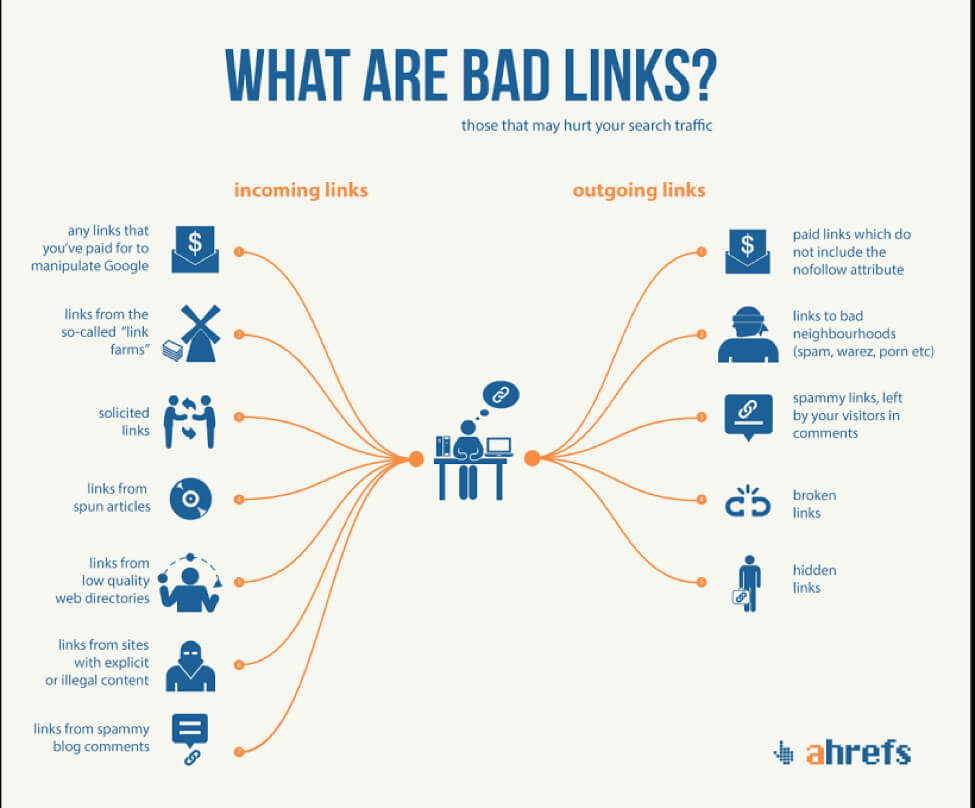
Source: zeve.au
Buying backlinks might seem like a shortcut to success, but it treads a dangerous path ethically and legally. Ignoring the ethical implications and potential legal ramifications can lead to serious consequences for your website and your business. This section explores the critical ethical and legal considerations involved in purchasing backlinks.
The ethical implications of purchasing backlinks are significant. Essentially, you’re attempting to manipulate search engine rankings by artificially inflating your website’s authority. This undermines the fairness and integrity of the search engine results pages (SERPs), disadvantaging websites that focus on creating high-quality content and earning backlinks organically. It’s a dishonest practice that devalues the efforts of legitimate website owners.
Furthermore, it can damage your brand reputation if discovered, eroding trust with your audience and potential clients.
Google’s Webmaster Guidelines Violations and Legal Ramifications
Google explicitly prohibits the purchase of backlinks in its Webmaster Guidelines. Violating these guidelines can result in severe penalties, including manual actions like a significant drop in rankings or even complete removal from Google’s index. These penalties can cripple a website’s online visibility and severely impact its ability to generate traffic and revenue. While Google doesn’t typically pursue legal action against individuals for minor infractions, persistent and large-scale violations of their guidelines can open the door to legal challenges, especially if it involves deceptive practices or fraud.
Examples of Websites Facing Legal Action for Black Hat Tactics
While specific legal cases against websites solely for purchasing backlinks are rare and often involve broader schemes of deceptive marketing, numerous examples exist where websites employing black hat tactics, including link schemes, have faced significant repercussions. For instance, a large-scale operation might be investigated for deceptive advertising or unfair competition if it involves purchasing a vast number of low-quality backlinks to unfairly dominate search results.
The penalties can range from financial fines to legal injunctions halting the deceptive practices.
Importance of Transparency and Honesty in Link Building
Transparency and honesty are paramount in building a successful and sustainable online presence. Ethical link building focuses on creating high-quality content that naturally attracts backlinks. This involves engaging with other websites and building relationships organically, focusing on mutual benefit rather than manipulation. Transparency means being open and upfront about your link-building strategies, ensuring that any links obtained are legitimate and earned through merit.
Honesty is about respecting the integrity of the search engine algorithms and the online ecosystem.
Ethical Considerations When Building Backlinks
Building backlinks ethically requires careful consideration of several factors. A transparent and honest approach is crucial to avoid penalties and maintain a positive online reputation.
- Focus on creating high-quality, valuable content that naturally attracts links.
- Build relationships with other websites in your niche through genuine engagement and collaboration.
- Avoid participating in link schemes or purchasing backlinks.
- Disclose sponsored content or paid partnerships clearly and transparently.
- Prioritize earning links through genuine outreach and content promotion.
- Monitor your backlink profile regularly to identify and address any potentially harmful links.
Alternatives to Buying Backlinks
Building high-quality backlinks organically is a far more sustainable and effective long-term strategy than purchasing them. While buying backlinks might seem like a quick fix, the risks far outweigh the potential rewards. Focusing on earning backlinks through genuine effort not only avoids penalties but also fosters a stronger, more trustworthy online presence. This approach prioritizes quality over quantity, leading to more valuable and lasting results.Effective organic backlink building relies on creating valuable content and actively promoting it to relevant audiences.
This involves a multi-pronged approach, encompassing content marketing, guest blogging, and targeted outreach. Each strategy plays a vital role in building a robust and natural backlink profile.
Guest Blogging
Guest blogging involves writing high-quality articles for other websites in your niche. This offers a powerful opportunity to showcase your expertise, reach a new audience, and earn a backlink to your website. The key is to identify websites with a relevant audience and high domain authority. Your guest post should be genuinely valuable to the host website’s readers, offering unique insights or perspectives.
Simply pitching articles for the sake of a backlink will likely be rejected. Focus on providing value first. A successful guest post on a reputable site can drive significant traffic and build credibility, resulting in more organic backlinks over time.
Content Marketing
Creating high-quality, engaging content is the cornerstone of any successful organic backlink strategy. This involves developing content that is informative, entertaining, or solves a problem for your target audience. Examples include in-depth blog posts, infographics, videos, and case studies. The goal is to create content so valuable that other websites will naturally link to it. This type of content acts as a magnet for backlinks, as other sites will want to share it with their own audience.
Thorough research and optimization are crucial for ensuring your content is easily discoverable by search engines and relevant audiences.
Outreach Strategies
Outreach involves proactively contacting website owners and bloggers to promote your content and request backlinks. This requires identifying websites relevant to your niche and reaching out to them with a personalized pitch. Your pitch should highlight the value of your content and explain why it would be a good fit for their audience. Don’t simply ask for a link; instead, focus on building relationships and demonstrating the mutual benefit of collaboration.
Effective outreach involves a genuine interest in connecting with other websites and building mutually beneficial relationships, not just obtaining backlinks. Persistence and patience are key to success in outreach.
Identifying and Targeting Relevant Websites for Link Building
Identifying suitable websites involves a combination of manual research and using tools. Begin by searching for websites with high domain authority in your niche using tools like Ahrefs or SEMrush. Analyze their content to ensure it aligns with yours and identify opportunities to contribute valuable content. Look for websites that already link to your competitors or cover similar topics.
Focus on building relationships with website owners, not just securing backlinks. The goal is to establish a long-term relationship based on mutual benefit, leading to sustainable link building.
Step-by-Step Guide to Building a Strong Backlink Profile Naturally
1. Research
Identify relevant s related to your niche and target audience.
2. Content Creation
Develop high-quality, engaging content that addresses your target audience’s needs and interests.
3. Guest Blogging
Identify relevant websites and pitch guest post ideas.
4. Outreach
Contact website owners and bloggers to promote your content and request backlinks.
5. Monitor and Analyze
Buying backlinks is a risky SEO strategy; Google’s algorithms are constantly evolving, and purchased links often backfire. Instead of resorting to that, focus on building genuine authority, and check out this awesome guide on getting it on with youtube to boost your video SEO. A strong YouTube presence, organically built, will provide far more sustainable and valuable backlinks than any paid scheme ever could.
Track your backlink profile using tools like Google Search Console and Ahrefs to identify opportunities for improvement.
6. Relationship Building
Focus on building genuine relationships with other website owners and bloggers.
Long-Term Benefits of Earning Organic Backlinks
Imagine a scenario where your high-quality content, such as an in-depth guide on “Sustainable Gardening Techniques,” resonates deeply with several gardening blogs. Because your guide provides unique, valuable information not readily available elsewhere, these blogs naturally link to your resource, citing it as a credible source. This not only boosts your website’s traffic but also strengthens its domain authority in the eyes of search engines.
Over time, these earned backlinks accumulate, leading to higher search engine rankings, increased brand awareness, and more organic traffic. This organic growth is sustainable and far more resistant to algorithm updates compared to the volatility of purchased backlinks. The credibility earned through organic link building translates into greater trust and authority, ultimately leading to improved business outcomes. This illustrates the powerful, enduring impact of a strategically built organic backlink profile.
Final Conclusion: Why Not To Buy Backlinks
In short, while the temptation to buy backlinks might seem appealing, the long-term consequences are rarely worth the risk. Investing time and effort in building genuine, high-quality content and engaging in ethical outreach strategies will not only yield better results in the long run but also protect your website’s reputation and avoid the potential for devastating penalties. Remember, sustainable success is built on trust, authority, and genuine engagement – not shortcuts.
Helpful Answers
What are some signs that a website is selling backlinks?
Look for websites offering suspiciously cheap backlinks in bulk, promising unrealistic results, or using aggressive sales tactics. Also, be wary of websites with low-quality content or irrelevant topics to yours.
Can I buy backlinks and not get penalized?
While there’s always a risk, the chances of getting penalized increase significantly with purchased backlinks, especially those from low-quality sources. Google’s algorithms are constantly improving at detecting unnatural link profiles.
How can I tell if my website has toxic backlinks?
Use tools to analyze your backlink profile. Look for backlinks from spammy websites, irrelevant sites, or those with low domain authority. Consider using a backlink disavow tool if you identify many harmful links.
What’s the best way to build backlinks organically?
Focus on creating high-quality, valuable content that naturally attracts links. Engage in guest blogging, outreach to relevant websites, and build relationships within your industry.
